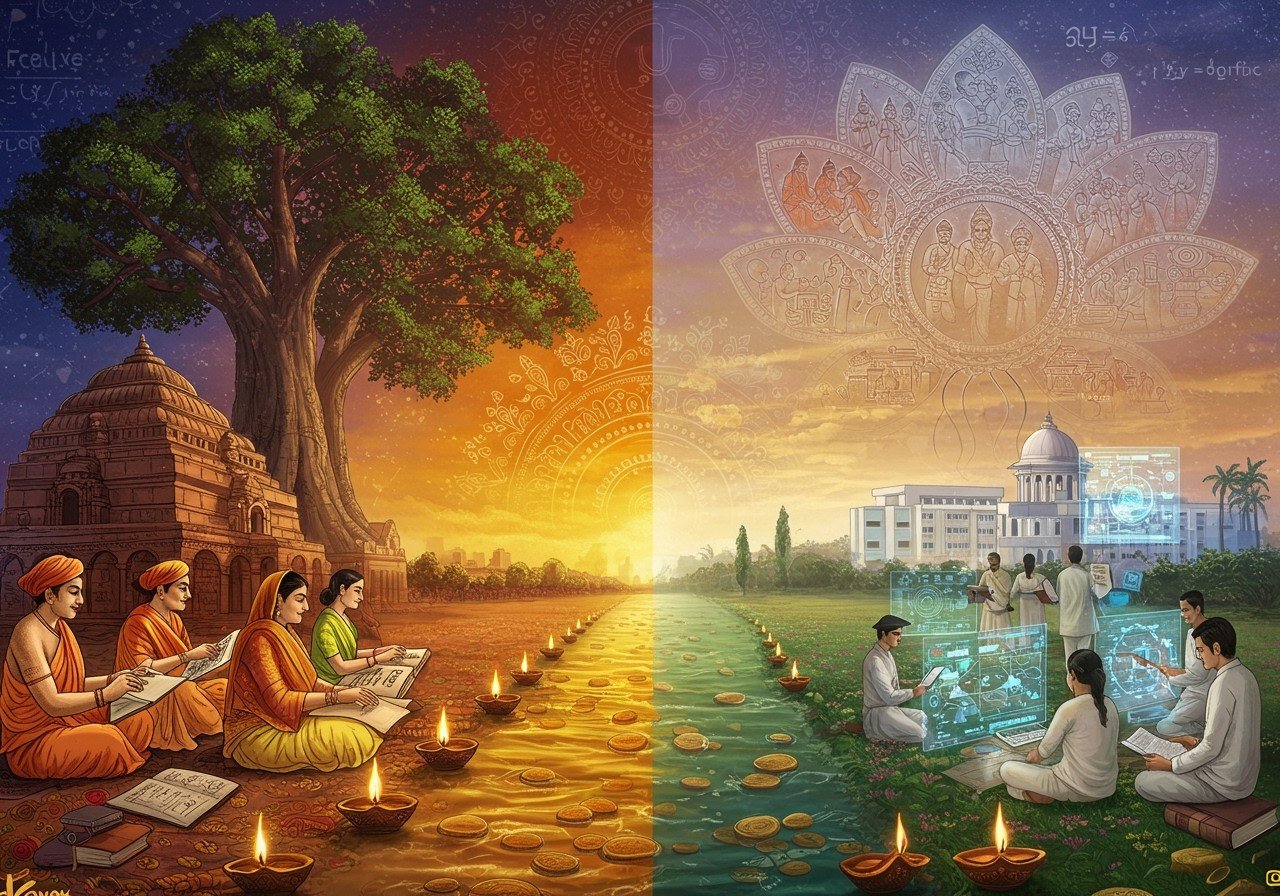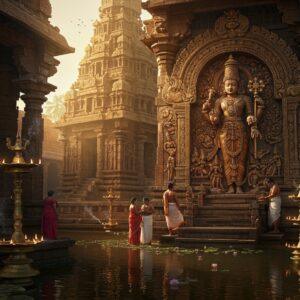
India’s journey through time showcases a captivating blend of tradition, culture, and modernization, shaping its education, economy, and social fabric. Comprehending these milestones offers valuable insights into India’s remarkable growth.
History of Education in India
India’s educational heritage is profound. The ancient Gurukul system, where students resided with their gurus, fostered a deep connection between teacher and pupil. Renowned centers of learning like Nalanda and Takshashila, prominent during the Buddhist and Jain periods, attracted scholars globally. The introduction of Western education during British rule led to the establishment of universities like the University of Calcutta. Post-independence, India witnessed the rise of prestigious institutions like the IITs and IIMs. The Right to Education Act of 2009 marked a significant step towards accessible education for all. Bridging the digital divide and enhancing rural education quality remain key challenges today. The evolution of education in India reflects its social, political, and economic transformations. From colonial influences to post-independence reforms, India’s educational aims have shifted to address societal needs and aspirations. The New Education Policy of 1986 marked a significant shift towards universal education. Education has played a crucial role in addressing inequalities and promoting social mobility, highlighting its impact on social change.
History of Economy in India
India’s economic landscape has transformed through various stages. Ancient trade routes thrived during the Maurya and Gupta empires. The Mughal era introduced systems like Zamindari, impacting land ownership and revenue collection. British colonial rule, unfortunately, exploited India’s resources, leaving a lasting impact. Post-independence, India adopted Five-Year Plans, focusing on industrialization. The 1991 economic liberalization marked a pivotal shift towards globalization, opening up the Indian market. The growth of the IT sector has positioned India as a global technology leader. Addressing unemployment and poverty continues to be a priority.
History of the Indian Constitution
The Indian Constitution stands as a cornerstone of India’s democracy. Its creation stemmed from the struggle for independence, reflecting the aspirations of a nation. The Constituent Assembly, led by visionaries like Dr. B.R. Ambedkar, meticulously drafted this foundational document. The Preamble, Fundamental Rights, and Directive Principles of State Policy are its core components. Landmark amendments, such as the 42nd Amendment, have shaped India’s legal framework. The Supreme Court’s power of judicial review ensures the Constitution’s integrity. Ongoing debates surrounding amendments demonstrate its enduring relevance.
Social Progress in India
India’s social structure has undergone significant transformations. Ancient systems like the caste system and traditional gender roles influenced social hierarchies. British rule witnessed reforms like the abolition of Sati and the legalization of widow remarriage. Post-independence, movements advocating for Dalit rights and women’s empowerment gained momentum. Government initiatives like reservations aim to promote social equity. Globalization and modernization continue to interact with traditional practices. Addressing challenges like urbanization and the digital divide remains crucial. Social entrepreneurs and grassroots movements are playing a vital role in driving positive social change.
How Poojn.in Supports Traditional Education and Knowledge
Poojn.in bridges the gap between India’s rich educational heritage and modern accessibility by offering authentic puja items and educational resources. As India’s leading cultural goods and services store, we provide:
- Comprehensive Saraswati Puja sets to promote academic success and knowledge seeking. We understand the importance of honoring the Goddess of knowledge and offer a wide selection of puja kits to facilitate this tradition.
For students and families seeking blessings for academic pursuits, explore our collection of Paddy, Chand Mala, and other essential puja items. - Traditional learning tools like brass slates (patties) and styluses, connecting learners with their heritage. These items are ideal for calligraphy practice, Vedic studies, and other traditional learning methods.
Enhance your study space with traditional camphor and sacred threads, creating a conducive environment for learning and spiritual growth. - Sacred thread ceremony (Upanayana) items for Vidyarambh ceremonies, marking the beginning of a student’s educational journey.
We offer a wide array of items specifically designed for these important ceremonies, helping families uphold these meaningful traditions. - Vedic education materials and ritual items to support the study and practice of Vedic traditions.
Our collection includes a variety of resources, including books, chanting beads, and other items, to facilitate deeper understanding and engagement with Vedic knowledge. - Books and materials on Indian history and cultural education, promoting awareness and understanding.
Explore our selection of informative resources to delve deeper into India’s rich cultural heritage and historical context.
Poojn.in empowers institutions, families, and individuals to preserve educational traditions while embracing progress. Each product is accompanied by detailed information about its significance and usage guidelines. For educational ceremonies and rituals, we provide:
- Saraswati Idols and Decorative Items to create a sacred space for learning.
- Pure Copper Water Vessels for Learning Ceremonies, upholding traditional practices.
- Traditional Bell-Metal Study Lamps to illuminate the path of knowledge.
- Specialized Puja Items for Educational Milestones, marking significant steps in a student’s journey.
Explore our extensive range of traditional educational items at www.poojn.in and enjoy convenient doorstep delivery across India. We also offer a variety of black sesame seeds (kala til) and incense sticks for your puja needs.
Conclusion
India’s historical narrative of education, economic development, and social advancement reflects its remarkable resilience and adaptability. From ancient traditions to modern advancements, each era contributes to India’s unique identity. Understanding this journey connects us to our roots while embracing future possibilities. Balancing tradition with modernity will continue to guide India’s path toward progress.


